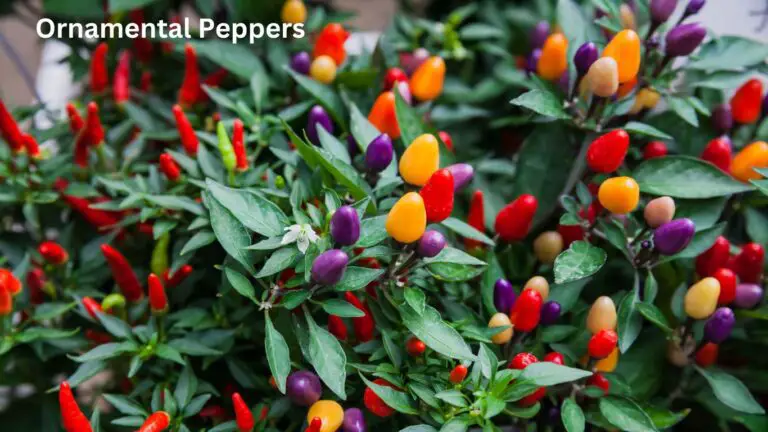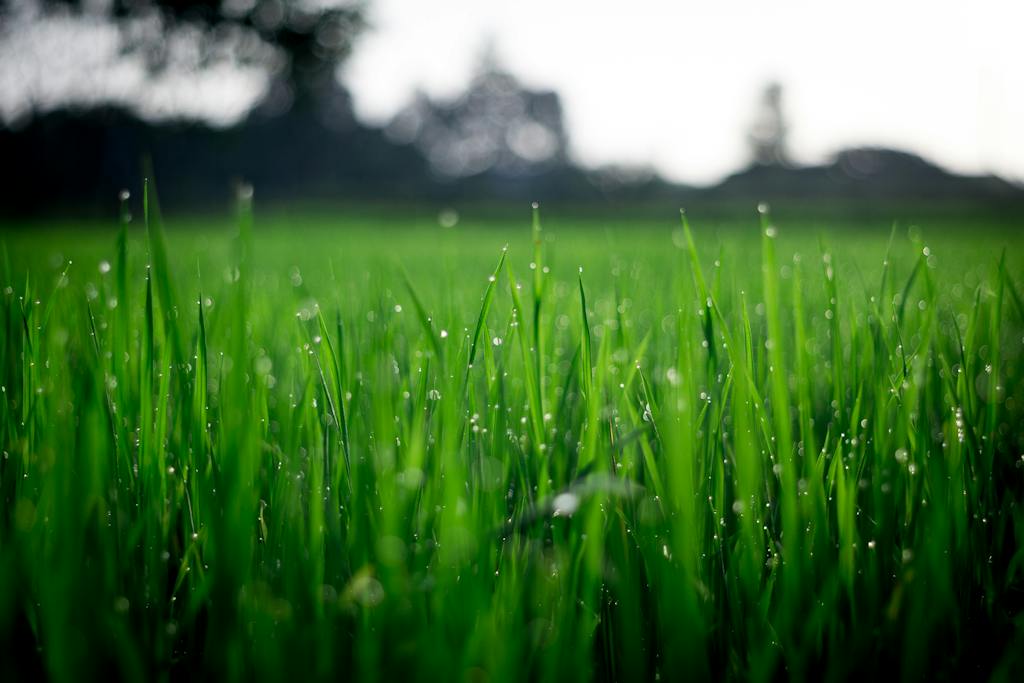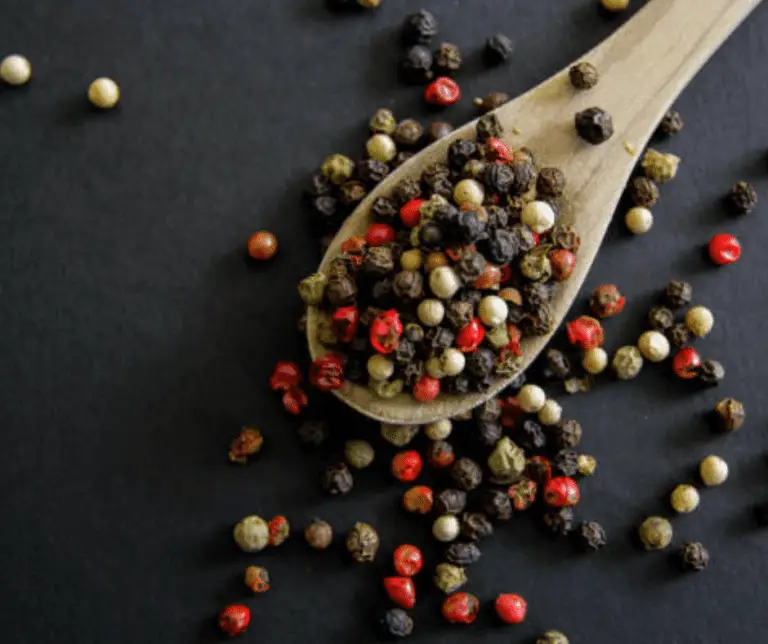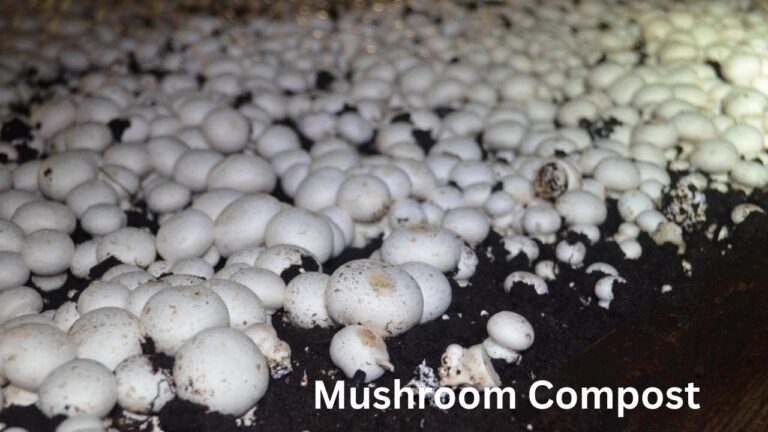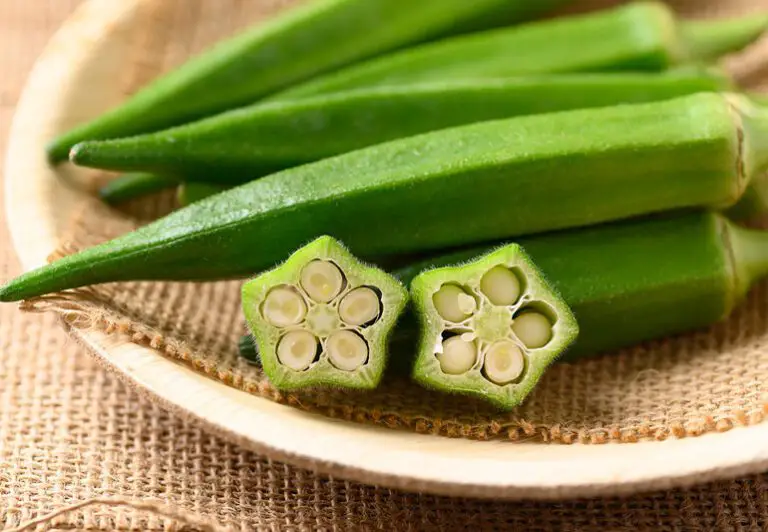“Cultivating Sunchokes: A Comprehensive Guide To Mastering Jerusalem Artichokes
Table of Contents
Benefits of growing Jerusalem Artichokes of Sunchokes
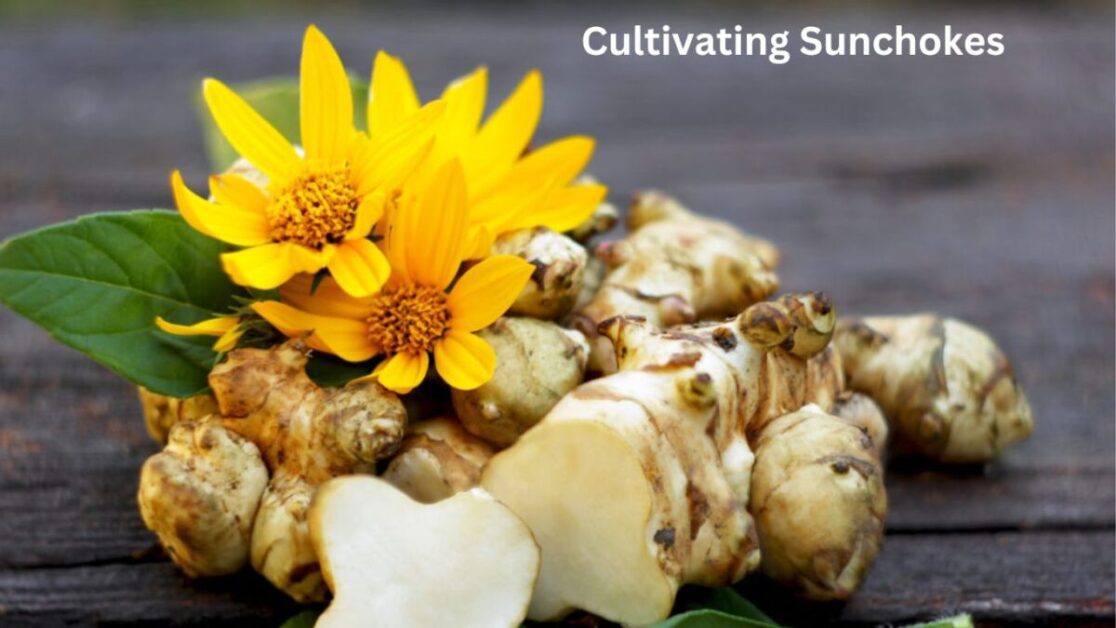
Jerusalem Artichokes, also known as sunchokes, offer a plethora of benefits to gardeners and kitchen enthusiasts alike. One of the main advantages of growing Jerusalem Artichokes is their remarkable resilience to adverse weather conditions. These tubers are able to thrive in various climates, making them a reliable crop for gardeners facing unpredictable growing seasons. Additionally, Jerusalem Artichokes are rich in inulin, a type of dietary fiber that supports gut health by promoting good bacteria in the digestive system. This fiber content also provides a steady source of energy, making sunchokes a nutritious addition to one’s diet.
Furthermore, Jerusalem Artichokes are a low-maintenance crop that require minimal attention once established. Their vigorous growth habit helps suppress weeds, reducing the need for constant weeding in the garden. Additionally, sunchokes are known for their prolific yields, providing a bountiful harvest with minimal input. This makes them an attractive option for gardeners looking to maximize their yield without investing excessive time and effort. Overall, the benefits of growing Jerusalem Artichokes extend beyond the garden, offering both nutritional and practical advantages that cater to a diverse range of gardening goals.
Ideal growing conditions for Jerusalem Artichokes
Jerusalem artichokes, also known as sunchokes, thrive in specific growing conditions that are essential for their successful cultivation. These hardy plants prefer full sun exposure for at least six to eight hours a day. Ensure the soil is well-draining, loose, and rich in organic matter to promote healthy root development. A neutral to slightly acidic soil pH level between 6.0 and 7.5 is optimal for Jerusalem artichokes.
Additionally, Jerusalem artichokes are adaptable to various climates but prefer moderate temperatures, typically thriving in USDA hardiness zones 3 to 9. Consistent moisture is crucial, so keep the soil evenly moist but not waterlogged. With these ideal growing conditions in place, Jerusalem artichokes can flourish and produce a bountiful harvest for you to enjoy.
Choosing the right location for planting
When selecting the optimal location for planting Jerusalem Artichokes, it is crucial to consider the plant’s requirements for successful growth. These sun-loving plants thrive in areas with full sunlight exposure. Therefore, choose a spot in your garden that receives at least 6-8 hours of direct sunlight daily to promote healthy development.
Additionally, Jerusalem Artichokes prefer well-drained soil with a slightly acidic to neutral pH level ranging from 6.0 to 7.0. Ensure that the chosen location has soil that is rich in organic matter, such as compost or well-rotted manure, to provide the necessary nutrients for robust growth. Avoid waterlogged areas as excessive moisture can lead to root rot and other diseases. By selecting a sunny, well-drained spot with fertile soil, you can set the stage for a successful Jerusalem Artichoke harvest.
Preparing the soil for planting sunchokes
To prepare the soil for planting Jerusalem Artichokes, it is essential to ensure that the area receives full sunlight for at least six to eight hours a day. Sunchokes thrive in well-draining soil with a pH level between 5.8 and 6.5. Before planting, it is crucial to test the soil to check its nutrient content and pH levels. Adding organic matter such as compost or well-rotted manure can improve soil structure and fertility, providing a nutrient-rich environment for the sunchokes to grow.
Additionally, Jerusalem Artichokes benefit from loose, friable soil that allows for easy root penetration and prevents waterlogging. Prior to planting, remove any weeds or debris from the planting area to prevent competition for nutrients and reduce the risk of pests and diseases. Incorporating a balanced fertilizer according to soil test recommendations can also help provide essential nutrients for the sunchokes’ growth and development. Proper soil preparation is a key step in establishing a healthy and productive Jerusalem Artichoke crop.
Planting methods for Jerusalem Artichokes
Jerusalem Artichokes, also known as sunchokes, are versatile and easy to grow plants that can thrive in various climates. When it comes to planting methods for Jerusalem Artichokes, there are a few key steps to follow to ensure a successful yield.
Firstly, it is important to choose healthy tubers for planting. Select tubers that are firm, free of any rot or damage, and have visible eyes or buds. Plant these tubers in well-draining soil with plenty of organic matter to promote healthy root development. Dig a hole about 4-6 inches deep and place the tubers horizontally with the eye facing upwards. Space the tubers about 12-24 inches apart to allow for proper growth and prevent overcrowding. Cover the tubers with soil and water thoroughly. Jerusalem Artichokes are known for their resilience and ability to tolerate a range of soil conditions, making them a great addition to any garden.
Watering and fertilizing sunchokes
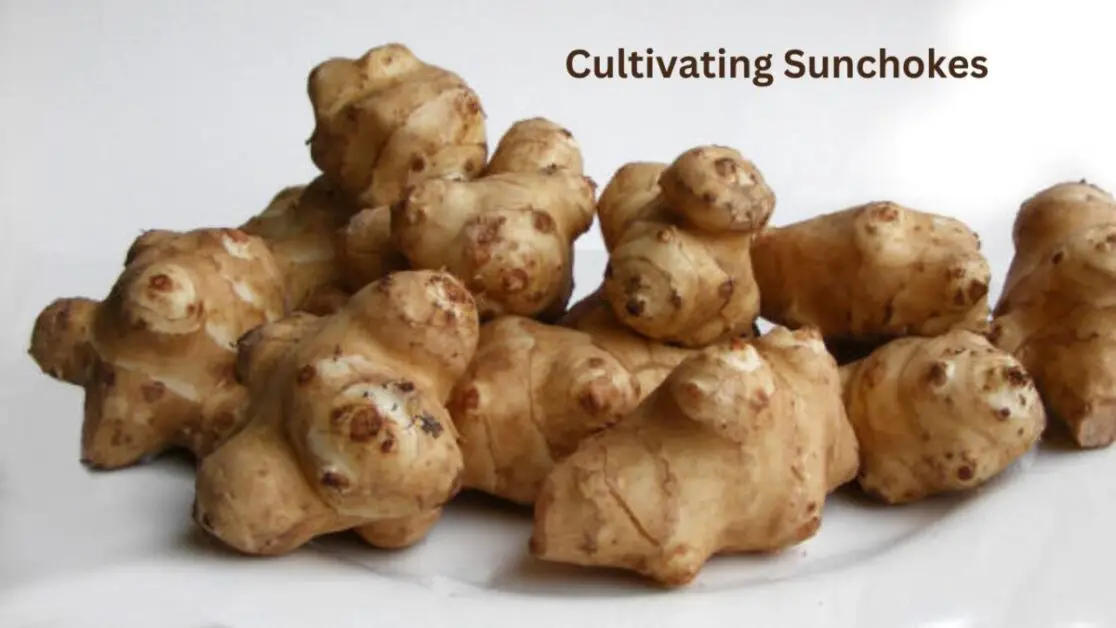
When it comes to watering and fertilizing sunchokes, it is essential to strike a balance to ensure optimal growth and productivity. Jerusalem Artichokes require consistent moisture in the soil to thrive, especially during the initial stages of growth and tuber development. However, it’s crucial not to overwater, as excessive moisture can lead to root rot and other fungal diseases. The best approach is to maintain even soil moisture by watering deeply but infrequently, ensuring the roots have access to water without being waterlogged.
In terms of fertilizing sunchokes, these plants are not heavy feeders, but they benefit from a balanced application of nutrients to support their growth. A general-purpose, slow-release organic fertilizer can be applied at the time of planting and supplemented with a side dressing of compost or aged manure during the growing season. Avoid excessive nitrogen fertilization, as it can lead to excessive foliage growth at the expense of tuber development. A soil test can help determine the specific nutrient needs of your soil to tailor your fertilization approach accordingly.
Managing pests and diseases in Jerusalem Artichokes
One of the key challenges in growing Jerusalem Artichokes is managing pests and diseases that can affect the plants. Common pests that may target sunchokes include aphids, caterpillars, and slugs. These pests can cause damage to the foliage, stems, and tubers of the plants, leading to reduced growth and yield. Regular inspection of the plants and prompt action to address any pest infestations are essential to prevent significant damage.
In terms of diseases, Jerusalem Artichokes are susceptible to fungal infections such as powdery mildew and rust. These diseases can weaken the plants and result in poor tuber development. To mitigate the risk of fungal infections, it is advisable to ensure proper air circulation around the plants, avoid overhead watering, and promptly remove any infected plant material. Additionally, using disease-resistant varieties and practicing crop rotation can help minimize the incidence of diseases in Jerusalem Artichokes.
Harvesting and storing sunchokes
Harvesting Jerusalem Artichokes is a rewarding task that signifies the culmination of your efforts in cultivating these versatile tubers. To harvest sunchokes, wait until late autumn or after the first frost for the tubers to develop their full flavor. Use a fork or shovel to gently dig around the base of the plant, being cautious not to damage the tubers underneath. Carefully remove the tubers from the soil, ensuring minimal bruising or cuts to prolong their storage life.
Storing Jerusalem Artichokes is key to preserving their freshness and crisp texture for an extended period. After harvesting, brush off excess soil without washing the tubers to prevent premature spoilage. Store the sunchokes in a cool, dark, and well-ventilated place, such as a root cellar or vegetable drawer in the refrigerator. Ensure there is no moisture buildup around the tubers to prevent rotting. Properly stored Jerusalem Artichokes can last for several weeks, allowing you to enjoy their unique flavor in various culinary creations.
Different culinary uses for Jerusalem Artichokes
Jerusalem artichokes, also known as sunchokes, offer a versatile ingredient for culinary enthusiasts. These knobby tubers can be enjoyed in various ways, adding a unique flavor and texture to dishes. One popular culinary use for Jerusalem artichokes is to roast them in the oven with olive oil, garlic, and herbs until they are crispy on the outside and tender on the inside. This simple preparation brings out the natural sweetness of the sunchokes, making them a delicious side dish or snack.
Another creative way to incorporate Jerusalem artichokes into your cooking is by pureeing them into a creamy soup. By blending cooked sunchokes with broth, onions, and seasonings, you can create a velvety soup with a subtle nutty flavor. Garnish with fresh herbs or a drizzle of olive oil for an elegant presentation. Additionally, Jerusalem artichokes can be thinly sliced and added to salads for a crunchy texture or pickled for a tangy addition to charcuterie boards. Experimenting with these culinary uses for Jerusalem artichokes can elevate your meals with their distinct taste and nutritional benefits.
Health benefits of consuming sunchokes
Sunchokes, also known as Jerusalem Artichokes, offer a plethora of health benefits beyond their culinary versatility. These tubers are a great source of inulin, a type of soluble fiber that acts as a prebiotic in the gut, promoting the growth of beneficial bacteria and aiding in digestion. In addition, sunchokes are rich in potassium, a mineral essential for nerve function, muscle control, and blood pressure regulation. Potassium also plays a crucial role in maintaining proper heart health and supporting overall cardiovascular function.
Moreover, Jerusalem Artichokes are a good source of iron, an essential mineral that helps in the transportation of oxygen throughout the body and is vital for energy production. Iron deficiency can lead to fatigue and impaired cognitive function, making sunchokes a valuable addition to a balanced diet. Additionally, these tubers contain significant levels of antioxidants like vitamin C and E, which help combat oxidative stress and inflammation in the body, thus contributing to overall well-being and immune system support.
Common mistakes to avoid when growing Jerusalem Artichokes
When growing Jerusalem Artichokes, it is essential to avoid common mistakes that may hinder the plant’s growth and yield. One common mistake is planting sunchokes in overly compacted soil. Jerusalem Artichokes thrive in loose, well-draining soil that allows the tubers to develop freely. Compacted soil can restrict root growth and cause issues like root rot, ultimately affecting the overall health of the plant.
Another mistake to avoid is overwatering Jerusalem Artichokes. While these plants require consistent moisture, waterlogged soil can lead to root suffocation and various fungal diseases. It is important to strike a balance and ensure that the soil is evenly moist but not saturated. Regularly check the soil moisture levels to prevent overwatering and maintain optimal growing conditions for healthy Jerusalem Artichokes.
Tips for maximizing yield from sunchokes
When aiming to maximize the yield of your Jerusalem Artichokes, it is crucial to start with selecting high-quality tubers for planting. Choose tubers that are firm, free from blemishes, and of a decent size, as they will give rise to robust plants with higher yields. Additionally, spacing plays a significant role in the productivity of sunchokes. Plant them at least 12-18 inches apart in rows that are about 3 feet apart to allow ample room for growth and ensure that each plant receives adequate sunlight and nutrients. Proximity might lead to overcrowding, hindering the growth and yield potential of your Jerusalem Artichokes.
Furthermore, regular and consistent watering is key to fostering a flourishing crop of sunchokes. Avoid long periods of drought by providing your plants with about 1-2 inches of water per week, either through rainfall or supplementary irrigation. However, be cautious not to overwater, as soggy soil can cause tubers to rot. By maintaining appropriate soil moisture levels, you can promote healthy root development and encourage optimal tuber formation, ultimately leading to a bountiful harvest of Jerusalem Artichokes.
Propagating Jerusalem Artichokes
Jerusalem Artichokes, also known as sunchokes, can be propagated through both tubers and seeds. Tubers are the most common method of propagation and are essentially the root of the plant. To propagate using tubers, select healthy and disease-free tubers from the previous year’s harvest. Cut the tubers into smaller pieces, making sure each piece has at least one eye or bud. Plant the tuber pieces in well-draining soil about 2-4 inches deep and 12-24 inches apart. Keep the soil consistently moist but not waterlogged to promote the growth of new plants.
On the other hand, Jerusalem Artichokes can also be propagated by seed, although this method is less common. To propagate using seeds, allow the flowers of the Jerusalem Artichoke plant to mature and develop seeds. Harvest the seeds and sow them in a seed starting mix indoors in early spring. Keep the seeds consistently moist and provide them with bright, indirect light. Once the seedlings have developed and the risk of frost has passed, transplant them into the garden. It’s important to note that Jerusalem Artichokes grown from seeds may not produce tubers identical to the parent plant, so tuber propagation is typically preferred for consistent results.
Growing Jerusalem Artichokes in containers

When opting to grow Jerusalem Artichokes in containers, it is essential to select a container that is at least 12 inches deep and 18 inches wide to accommodate the growth of the plants. Ensure that the container has good drainage holes to prevent waterlogging, which can lead to root rot. Use a well-draining potting mix rich in organic matter to provide the sunchokes with the necessary nutrients for healthy growth.
Jerusalem Artichokes grown in containers require regular watering to keep the soil evenly moist but not soggy. Place the containers in a sunny location that receives at least 6-8 hours of sunlight daily to promote robust growth. Consider supplementing with a balanced fertilizer every 4-6 weeks during the growing season to support the plants’ nutrient requirements. Regularly monitor the containers for any signs of pests or diseases, and promptly address any issues that may arise to ensure the health and vitality of your Jerusalem Artichokes.
Here’s a simple table outlining key sections for “Mastering Jerusalem Artichokes: A Comprehensive Guide to Cultivating Sunchokes”:
| Section | Description |
|---|---|
| Introduction | Overview of Jerusalem artichokes and their significance |
| History and Origins | Origins of Jerusalem artichokes and historical uses |
| Botanical Characteristics | Detailed description of the plant’s anatomy |
| Varieties | Different cultivars and their characteristics |
| Growing Conditions | Ideal soil, climate, and sunlight requirements |
| Propagation Methods | Techniques for planting and propagating sunchokes |
| Planting Guide | Step-by-step instructions for planting |
| Care and Maintenance | Tips for watering, fertilizing, and pest control |
| Harvesting and Storage | Best practices for harvesting and storing sunchokes |
| Culinary Uses | Recipes and cooking tips for preparing sunchokes |
| Health Benefits | Nutritional value and potential health benefits |
| Troubleshooting Common Issues | Solutions to common problems encountered in cultivation |
| Future Developments and Trends | Emerging practices and research in sunchoke cultivation |
This table provides a structured overview of the comprehensive guide, organizing information for easy reference and navigation.
Celebrating the harvest of sunchokes
Once your Jerusalem Artichokes are ready for harvest, it’s time to celebrate the bounty of your labor. They can be harvested from late autumn through early spring, once the plants have died back, and the tubers are fully developed. The joy of pulling these knobby tubers from the earth is a gratifying experience that rewards the efforts put into growing them.
After harvesting, it’s essential to handle the sunchokes with care to avoid any damage to the delicate tubers. A good wash and scrub will reveal the smooth, edible skin underneath the dirt-covered exterior. Once cleaned, these versatile tubers can be used in a myriad of culinary creations, from soups and stews to roasted side dishes. The rich, nutty flavor of Jerusalem Artichokes is a delightful addition to any meal, making the harvest season a time to savor and enjoy the fruits of your labor in the garden.
Can Jerusalem Artichokes be grown in containers?
Yes, Jerusalem Artichokes can be grown in containers as long as the container is large enough to accommodate the plant’s growth and has proper drainage.
Are there any specific health benefits associated with consuming sunchokes?
Yes, sunchokes are high in fiber, iron, and potassium, making them beneficial for digestion, energy levels, and overall health.
How can I propagate Jerusalem Artichokes?
Jerusalem Artichokes can be propagated by dividing the tubers in the fall or early spring before planting.
What are some common mistakes to avoid when growing Jerusalem Artichokes?
Common mistakes to avoid when growing Jerusalem Artichokes include planting them in soil that is too compacted, over-watering, and not providing enough space for the plants to grow.
What are some different culinary uses for Jerusalem Artichokes?
Jerusalem Artichokes can be roasted, sautéed, mashed, or used in soups and salads as a flavorful and nutritious addition to meals. They can also be pickled or fermented for added versatility in the kitchen.
How should I store harvested sunchokes?
Harvested sunchokes can be stored in a cool, dark place for up to several weeks. They should be kept dry and can be stored in a paper bag or perforated plastic bag to allow for airflow.
What are some tips for maximizing yield from sunchokes?
To maximize yield from sunchokes, be sure to plant them in well-draining soil, provide adequate water and sunlight, and harvest them when the tubers are fully mature. Additionally, rotating crops and practicing good soil management can help increase yields over time.


